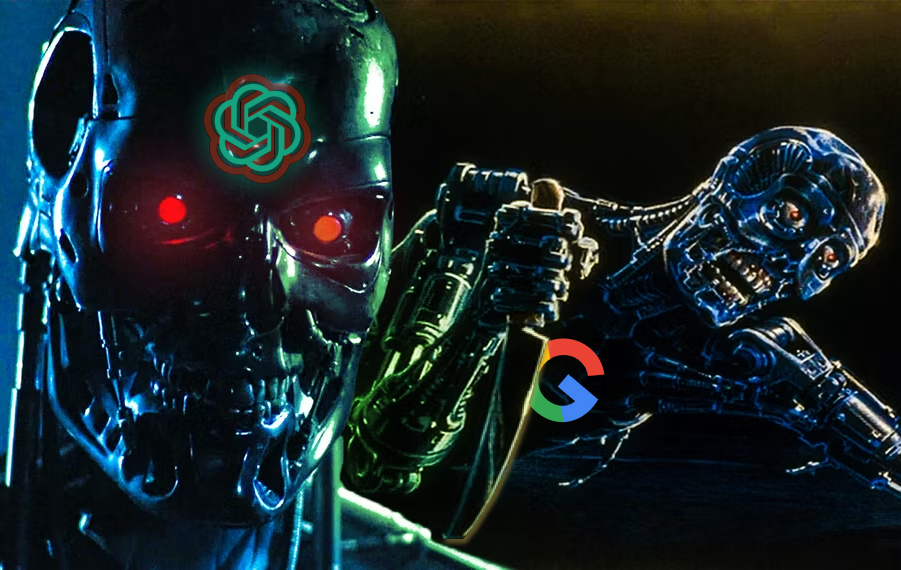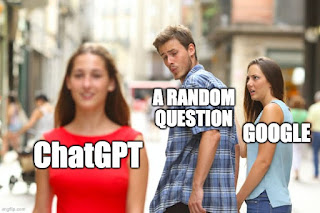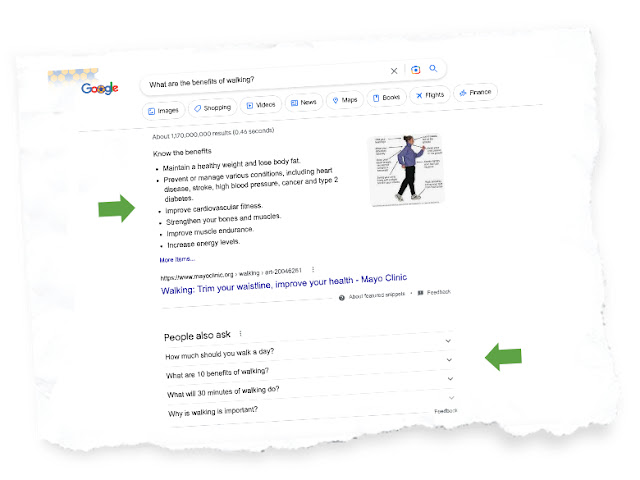Understanding the Innovator's Dilemma in 2023: Google vs. the Bots
Is ChatGPT a Google Killer?
With the rise of ChatGPT, Google is now facing a business-model problem for the first time in years. There's a new disruptive technology in town, and it's about to revolutionize the way humans find information online. Searching is out. Asking is in.
Google makes money (~60% of revenue) when people skim through multiple search results and click on ads placed next to organic links, but soon there's going to be a superior way to get immediate answers without skimming and clicking.
Soon enough people will start asking themselves: why search for it when we can just ask?
Google has similar AI capabilities (LaMDA) but chose not to release them, fearing wrong results will make people lose trust in the good old search brand.
So while OpenAI positions ChatGPT as something experimental, evolving, and exciting, Google refrains from using similar technology in order not to risk its' existing business.
Sounds familiar?
Here are a few classic Innovator's Dilemma examples. In most of them, it ended up pretty bad for the incumbents:
1. Kodak was a pioneer in the film photography industry, but the company struggled to adapt to the shift to digital photography. Kodak engineer Steve Sasson actually invented the digital camera in the '70s, but Kodak’s leadership rejected the idea, fearing it would cannibalize the existing film business. The patent expired in 2007 and Kodak filed for bankruptcy in 2012.
2. Blockbuster was a dominant player in the home video rental industry for many years, but the company failed to adapt to the rise of streaming services like Netflix. As streaming became more popular, Blockbuster struggled to keep up and ultimately went bankrupt in 2010.
3. Xerox was a leader in the copiers market, but the company struggled to adapt to the rise of cheap, smaller photocopiers from Canon and Ricoh. The market expanded from large organizations only, to a wide spread of personal photocopiers, and Xerox was left behind.
4. Blackberry was ubiquitous in the smartphone market. They basically invented the smartphone as we know it, and put it in the hands of millions of business people, but the company struggled to adapt to the rise of the iPhone and Android. While consumers quickly adopted the all-touch smartphones, Blackberry insisted on physical keyboards and enterprise play, dropping from 43% market share to 5% in just 3 years.
5. In 1996, General Motors rolled out the EV1, an innovative electric car. GM produced 1,117 EV1s but made them only available for lease. The car was popular among environmentalists and celebrities like Tom Hanks and Mel Gibson. Despite creating traction, GM decided to stop the EV initiative fearing electric vehicles would cannibalize its conventional business. Then came Tesla, and the rest is history...
6. Microsoft, once the all-mighty king of personal computers, struggled to adapt to the rise of mobile computing. Microsoft CEO back then Steve Balmer was quoted saying about the iPhone:
"That is the most expensive phone in the world, and it doesn't appeal to business customers because it doesn't have a keyboard."



Comments
Post a Comment